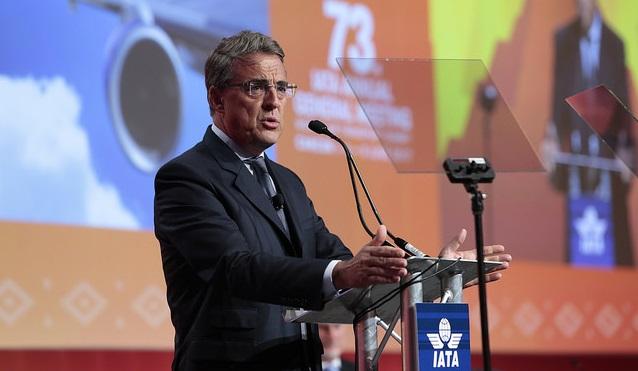
Current plans to develop global aviation infrastructure are insufficient to meet a ‘looming crisis’ in the industry, IATA’s director general has claimed.
Speaking at the organisation’s 73rd AGM held in Cancun, Mexico, Alexandre de Juniac warned that the current infrastructure can “barely cope with demand”, with existing development plans “not ambitious enough to accommodate the 7.2 billion passengers we expect in 20 years’ time”.
“Europe is the extreme example,” he said. “Eurocontrol predicts that the continent’s airports will only be able to accommodate 88 percent of expected demand in 2035.”
“Unless there is major change, we estimate that the cost of infrastructure deficiencies to Europe’s prosperity will reach €245 billion in the same year.”
“I am not just picking on Europe. There are airport bottlenecks from Bangkok and Sydney to New York, Mexico City and São Paulo. And air traffic congestion is at unbearable levels in China, the Gulf, Europe and the US.”
The director general proposed that IATA’s Worldwide Slot Guidelines are the first tool in addressing this challenge, along with the Single European Sky proposal.
Additionally, he said that linking aviation development to national economic strategy can produce “amazing results” for countries.
“Singapore, South Korea, the UAE, Qatar and Panama are among the rare examples” he said. “Encouragingly, Germany is making efforts to join the club with its recently announced Aviation Concept. It needs to move from concept to action, and I hope that other states will see the benefits and follow.”
However, he warned against “cash-strapped governments” turning to privatisation as a funding solution.
He said: “When governments privatize critical infrastructure, economic regulation is essential. To date I cannot name a single success story.”
Finally, de Juniac slammed the costs associated with the third runway at Heathrow.
“We’ve waited decades for a third runway. The UK government has finally committed to build it,” he said. “But the £17 billion price tag is an outrageously expensive bill that we are not prepared to pay.”





